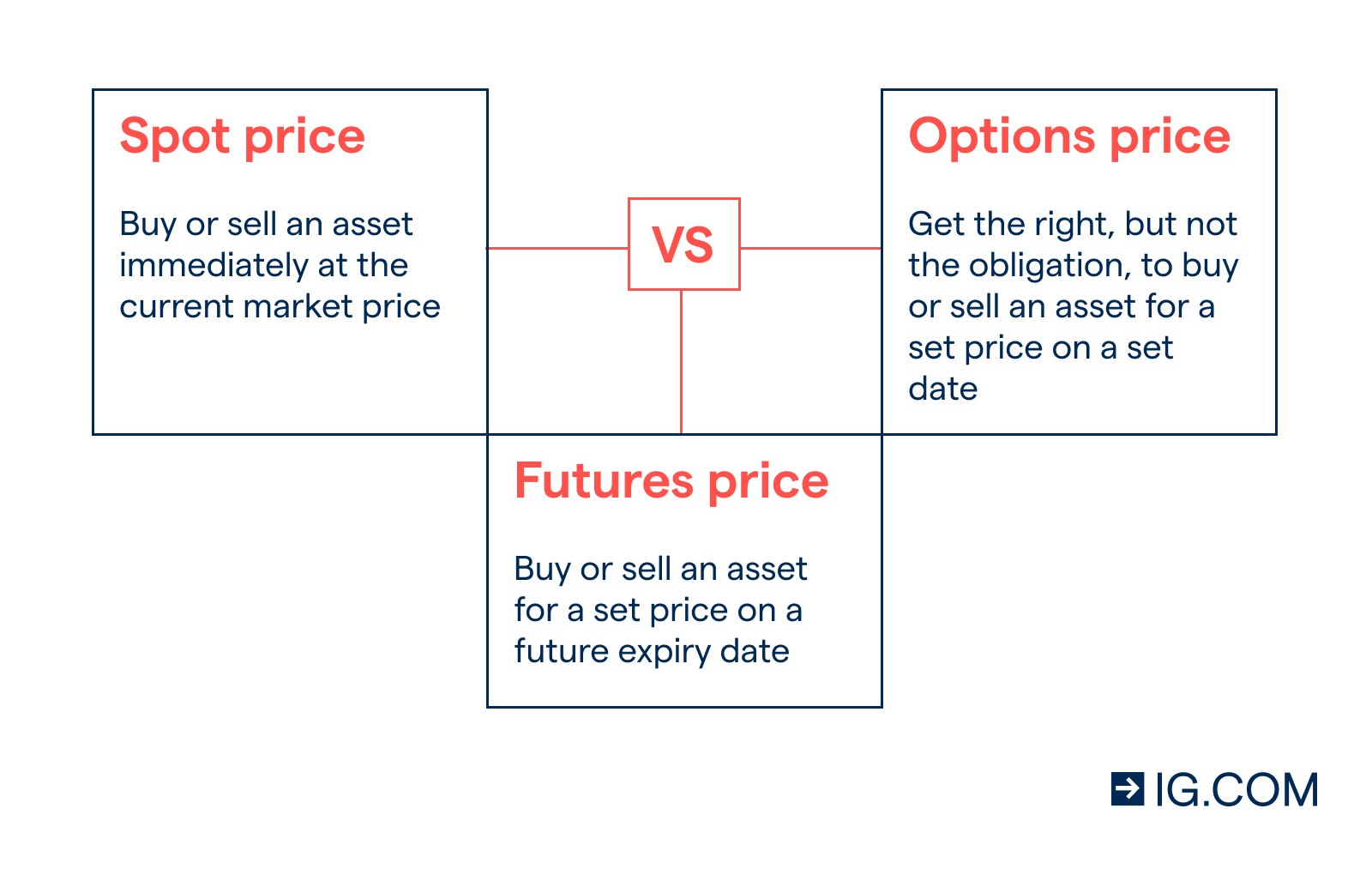Understanding the Basics of Futures Options Trading
Futures options trading is an advanced investment strategy that involves the buying and selling of futures options, which are financial contracts that give the holder the right, but not the obligation, to buy or sell an underlying futures contract at a specific price on or before a certain date. This type of trading offers opportunities for both risk management and potential profit generation, but it also requires a thorough understanding of its principles and mechanisms.

Image: www.ig.com
Key Concepts in Futures Options Trading
- Futures Contracts: Futures contracts are agreements to buy or sell a specific quantity of an underlying asset, such as a commodity, stock, or currency, at a predetermined price on a future date.
- Options: Options are derivative contracts that grant the buyer the right to buy (call option) or sell (put option) an underlying asset at a strike price on or before a specified expiration date.
- Option Premium: The price paid by the buyer to acquire the right to exercise the option.
- Option Strike Price: The predetermined price at which the underlying asset can be bought or sold when the option is exercised.
- Calls and Puts: Call options give the buyer the right to buy the underlying asset, while put options give the right to sell.
Types of Futures Options Strategies
Futures options can be used in a variety of strategies to manage risk and potentially profit from price fluctuations in the underlying asset. Some common strategies include:
- Covered Options Writing: Selling options when the trader holds the underlying asset to potentially generate income from premiums while limiting potential losses.
- Protective Options Buying: Buying options to protect against potential losses in the underlying asset.
- Bullish Options Strategies: Using options to bet on a rise in the underlying asset’s price, such as buying calls or selling naked calls.
- Bearish Options Strategies: Using options to bet on a decline in the underlying asset’s price, such as buying puts or selling naked puts.
Market Dynamics and Influences
The value of futures options is influenced by several factors, including:
- Underlying Futures Contract Price: The option price moves in the same direction as the underlying futures contract.
- Time to Expiration: As the expiration date approaches, the option price decays, especially if it is out-of-the-money.
- Interest Rates: Changes in interest rates can affect the value of options, particularly for longer-term contracts.
- Volatility: The higher the volatility of the underlying asset, the more valuable options become.

Image: www.pinterest.com
Risk Management Considerations
Futures options trading involves substantial risk, and it is crucial to employ proper risk management strategies:
- Understand Risk Tolerance: Determine how much loss you are willing to tolerate before entering into any trade.
- Limit Positions: Avoid trading large positions that could exceed your risk threshold.
- Use Stop-Loss Orders: Set stop-loss orders to limit potential losses in case of adverse market movements.
- Manage Margin: Futures options trading typically requires margin, which is a deposit used as collateral to secure your positions.
Benefits of Futures Options Trading
Despite the risks involved, futures options trading can offer several potential benefits:
- Leverage: Options trading allows traders to gain exposure to large positions with a relatively small investment.
- Income Generation: Options can be used to generate income through strategies like covered options writing.
- Risk Hedging: Options can be used to protect against potential losses in existing positions or portfolios.
- Flexibility: Options provide traders with a wide range of strategies to tailor to their individual risk appetites and market views.
Futures Options Trading Basics

Image: www.pinterest.com.mx
Conclusion
Futures options trading is a complex and sophisticated investment strategy that requires a thorough understanding of its principles and risk management techniques. By leveraging the right strategies and carefully managing risk, traders can potentially reap the benefits of futures options trading, such as leverage, income generation, risk hedging, and market flexibility. However, it is essential to approach this type of trading with caution, conduct thorough due diligence, and seek professional guidance if necessary.






